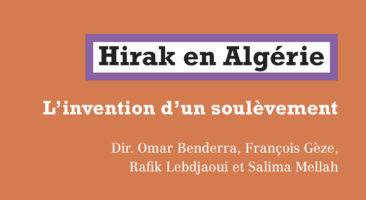New penal code criminalises illegal immigration in Algeria
Magharebia, 4 september 2008
Algeria’s new penal code, adopted on August 31st, sets out prison sentences for harragas. The measure has been viewed differently by observers and specialists in Algeria. By Achira Mammeri for Magharebia in Algiers – 04/09/08
Leaving Algeria illegally is now considered a criminal offence. In the new Penal Code, approved Sunday (August 31st) by the Council of Ministers, harragas (illegal immigrants) may receive prison sentences of up to six months. Penalties are harsher for the traffickers who co-ordinate the migration networks, allowing sentences up to ten years in the worst cases.
According to a government statement, the sentence is « increased when the crime has been committed by a person whose position facilitated the act, or when it has been committed by an organised group or with the use of weapons ».
The problem of illegal immigration, which has worsened over the past two years, has received national attention in Algeria, eliciting action from civil society and the government. President Abdelaziz Bouteflika broke his long silence on the issue to say, « There would be no difference between suicide bombers and harragas, except that the former kill innocent people and the latter do more harm to their close families and first and foremost to themselves. »
The new punishments for illegal immigrants have not received unanimous support from politicians. The National Liberation Front (FLN) and the National Democratic Rally (RND) applauded them, judging that « this dissuasive measure will make an effective contribution to combating illegal immigration. »
But the Algerian National Front (FNA) opposes the law. Mohamed Ben Hamou, an MP and party official, said « criminalising the phenomenon of the harragas will change nothing. »
« The government must get to the root of the problem, » he said, « and look into the reasons which drive graduates, unemployed people, women and even the elderly to take such risks to get to Europe, instead of searching for the easy solution. »
The phenomenon needs to be tackled, said Ben Hamou, by « establishing a real social peace, creating jobs and solving the housing problem ».
The new law, he concluded, means Algeria is giving in to pressure from Europe to put the brakes on the problem.
Lawyer Fatima Ben Brahem is of the same opinion. She has called on the president to « offer amnesty to harragas who are in prison, and to repeal this offence ».
Ben Brahem, who has defended harragas being tried by various courts across the country, said prison will not dissuade desperate young people from repeating their offence : « My clients, who are all desperate young people, are determined to resume their plans once they have served their sentence. »
The lawyer recommends an administrative procedure rather than a penal sentence to combat the phenomenon. In 2007, the authorities recorded 2,400 instances of illegal immigration. The most recent was caught on August 31st. Twenty-five would-be illegal immigrants were saved from drowning by the coast guard in Ténes and Annaba (east of Algiers).
According to statistics from the Algerian Red Crescent, the institution receives pleas every month from families who have lost contact with their harraga offspring, asking them to carry out searches. The same source says that the number of illegal immigrants dying at sea has risen from 29 in 2005 to 83 in 2008.

